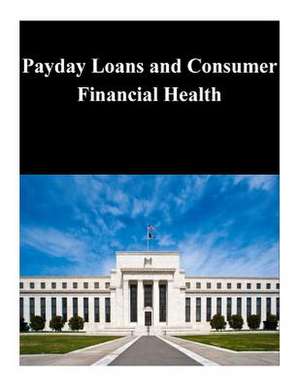Payday Loans and Consumer Financial Health
Autor Federal Reserve Boarden Limba Engleză Paperback
Preț: 81.50 lei
Nou
Puncte Express: 122
Preț estimativ în valută:
15.60€ • 16.11$ • 12.98£
15.60€ • 16.11$ • 12.98£
Carte disponibilă
Livrare economică 04-18 martie
Preluare comenzi: 021 569.72.76
Specificații
ISBN-13: 9781503283510
ISBN-10: 1503283518
Pagini: 34
Dimensiuni: 216 x 279 x 2 mm
Greutate: 0.1 kg
Editura: CREATESPACE
ISBN-10: 1503283518
Pagini: 34
Dimensiuni: 216 x 279 x 2 mm
Greutate: 0.1 kg
Editura: CREATESPACE
